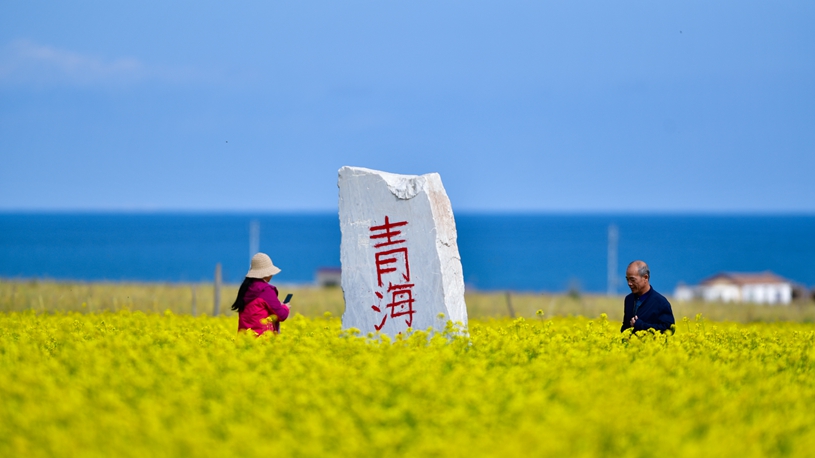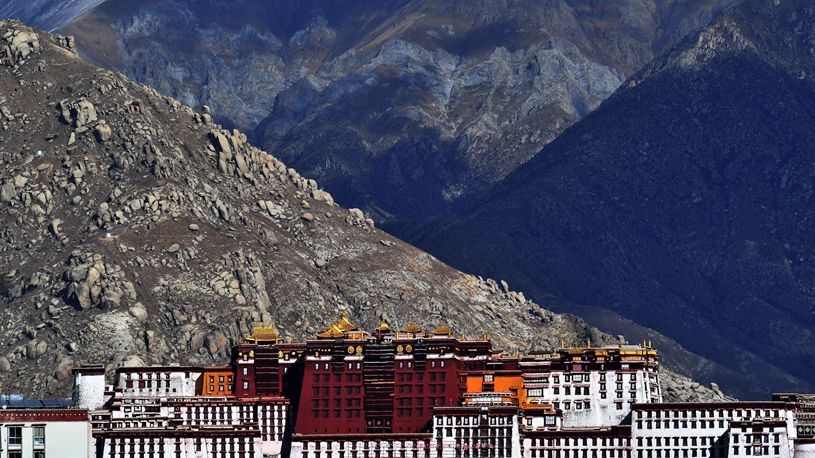
Children have fun on Dove Lane in Hotan City, northwest China's Xinjiang Uygur Autonomous Region, May 27, 2020. (Xinhua/Sadat)
BEIJING, Nov. 4 (Xinhua) -- Deaf and blind to the undeniable facts, the United States, Canada, and a few other countries have once again attacked and smeared the human rights situation in Xinjiang recently. Their attempts to politicize and weaponize human rights, however, have been defeated.
At a meeting of the Third Committee of the 77th session of the United Nations (UN) General Assembly this week, over 60 countries, in a joint statement, expressed support for China's position on issues related to Xinjiang, Hong Kong, and Tibet, and opposition to interference in China's internal affairs under the pretext of human rights.
As was pointed out by Dai Bing, charge d'affaires at the Chinese Permanent Mission to the United Nations, the real purpose of the United States and some other Western countries creating an uproar about Xinjiang is to destabilize China, obstruct China's development and maintain their hegemony by exploiting human rights issues.
Dai underscored that no matter how those countries hype up the stories they fabricated, they cannot obliterate the progress of the human rights cause in Xinjiang, which is a fact.
While some Western politicians have, for years, spared no effort to malign the human rights situation in the Chinese northwestern autonomous region, Xinjiang's constant efforts to defend human rights and improve people's well-being have resulted in achievements conspicuous to all open and fair minds throughout the world.
Human rights are people-centered. Over the past 60-plus years, the Uygur population in Xinjiang has substantially increased from 2.2 million to around 12 million, with the region's average life expectancy growing from 30 years to 74.7 years.
All ethnic groups have enjoyed equal opportunities and economic rights, and are developing the region together and building better lives. Absolute poverty had been eradicated, and both urban and rural residents' per capita disposable income dramatically increased.
Over the past decade, more than 70 percent of Xinjiang's fiscal spending has been directed toward improving people's livelihoods. Across the region's vast rural areas, three years of preschool education and nine years of compulsory education are free, and the four prefectures in southern Xinjiang offer 15 years of free education.
Another fact is that there has been no terrorist incident in Xinjiang for more than five years. Thanks to the counter-terrorism and de-radicalization measures in accordance with the law, the primary and basic human rights to subsistence and development of all ethnic groups in Xinjiang have been better protected.
The international community has also applauded the remarkable improvement of people's well-being in Xinjiang. In recent years, more than 2,000 government officials, religious personnel and journalists from over 100 countries and organizations have visited Xinjiang. What they have seen is a peaceful and harmonious Xinjiang that is steadily developing.
Earlier this year, a delegation of diplomatic envoys of developing countries from Asia and Africa to the UN Office in Geneva visited Xinjiang. The envoys said that they witnessed a diverse, modern and inclusive society during their four-day trip, which stands in stark contrast to the image that had been painted by rumors of "forced labor" and "ethnic genocide."
Foreign Ministry Spokesperson Zhao Lijian said this week that certain Western countries need to deeply reflect on their own human rights woes and learn their lesson from the human rights disasters they have brought onto other countries.
As an English proverb goes "the proof of the pudding is in the eating." In China, there's also a similar adage that "to know whether the shoes fit or not, ask the wearer."
China's governing policy in Xinjiang has been supported by the more than 25 million people of all ethnic groups in the region. Today's Xinjiang is safe, stable, and developing robustly. Local people enjoy peaceful lives. ■












